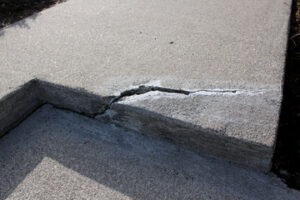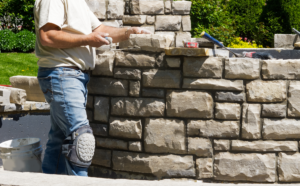Concrete work requires a lot of attention to detail. Licensed concrete contractors can follow blueprints and other technical documents to ensure that their projects meet specifications.

Licensed contractors also know how to obtain the proper permits for construction projects. This saves time and money for the project owner. They also buy their materials from local suppliers, boosting the community economy. To learn more, visit https://www.bakersfieldconcretecontractorservices.com.
If you’re in the market for a concrete contractor, it’s important to find one that is licensed. This ensures that the contractor has proper training and knowledge of the industry. In addition, it protects you from any issues that may arise during the project. You should also check whether the contractor is bonded. This is especially important if you’re dealing with large-scale commercial projects.
When selecting a concrete contractor, make sure that they can provide examples of their previous work. This will help you understand what kind of work they can do and if they’re right for your job. You can also ask the contractor for references from past clients. This will give you an idea of how happy the clients were with their work.
It’s also a good idea to choose a concrete contractor that is insured. This will help you avoid any issues with the contractor’s insurance in the future. You should also look for a company that is bonded, which protects you in case the company doesn’t complete the project or fails to pay their subcontractors.
Concrete contractors should be able to provide you with a detailed estimate of the cost and time frame for the project. This will help you select a contractor that fits your budget and meets your deadlines. In addition, a good concrete contractor should be able to explain how their pricing works and what is included in the price.
Most concrete contractors learn their trade on the job. They typically start as an apprentice or entry-level worker on a construction crew and get hands-on experience. However, some have attended formal classes and earned certificates for specific concrete jobs, such as formwork or finishing.
Some concrete contractors are knowledgeable about local ordinances and permits needed to complete projects on your property. If the contractor isn’t familiar with these rules, it could lead to expensive delays down the road. Choosing a contractor that is familiar with the permit process will save you time and money. It will also ensure that your project complies with local laws.
Experienced
The concrete industry is highly specialized, and it’s important to find contractors with plenty of experience. This will help ensure the quality of their work and make sure the project is completed within your desired time frame. A professional contractor should have a portfolio of past projects to show you, and they should also be able to provide you with references from previous customers.
You should also look for a contract that includes detailed information on the cost of materials, labor and other services. This will help avoid any misunderstandings or disputes down the road. In addition, a contract should also specify any project schedules, requirements, or other pertinent details. Finally, a reputable concrete contractor should be able to give you an estimate of how long the project will take.
A good concrete contractor should be able to handle a variety of projects, including residential and commercial structures. They should be able to complete a wide range of jobs, from sidewalks to foundations. They should also have a solid understanding of the latest construction techniques, which is essential for ensuring the longevity of your concrete structures.
It’s also important to find a concrete contractor that’s licensed and insured, which will protect you in case something goes wrong during the project. Additionally, they should be a member of a professional association like the American Society of Concrete Contractors, which will keep them up-to-date on the latest developments in the industry.
The best way to evaluate a concrete contractor’s skills and expertise is to review their previous work. This will allow you to see what type of work they’ve done in the past and determine if their style fits your needs. Concrete contractors that have a passion for their craft are usually more efficient in the field and in the office, which leads to better craftsmanship and customer service. They also know how to use the right tools and equipment for each job, and they’ll often have a few specialty items on hand that aren’t always available at your local hardware store. For example, some contractors specialize in imprinting patterns into concrete before it sets, replicating the appearance of brick, slate, flagstone, or other styles.
Free Estimates
If you need new concrete work on your property, look for a contractor that offers free estimates. This will allow you to meet with multiple contractors and get a feel for their prices. Make sure to get detailed quotes that include line item pricing for labor and materials so you can compare them side by side. Also, ask about any down payment requirements and their preferred method of payments. A quality contractor will be more than happy to answer any of your questions.
The best contractors will not only repair existing concrete structures but also add features that complement the style and design of your property. They will use creative and innovative methods to ensure that the finished product is exactly what you wanted. They will also provide a variety of color options for you to choose from.
Leaking steps, deteriorated driveways or a broken patio are just some of the reasons why you might need concrete services. However, when looking for a company that provides these services, it is important to prioritize professionalism and experience over location or proximity. Look for a company that is licensed, insured and has positive customer reviews. Also, consider the time frame in which they schedule estimates and work.
While concrete is a durable material, normal wear and tear over time can damage it. A concrete service can assess the extent of the damage and recommend restoration techniques like resurfacing, epoxy injections or patching. If the damage is severe, a concrete replacement may be needed.
A reputable concrete contractor will stand behind the quality of their work and provide a warranty for their services. A good way to find out if a concrete contractor is reputable is by reading public reviews on websites such as Google, Facebook and Angi. A quality concrete company should have many positive reviews and will respond quickly to negative ones.
A good concrete contractor will have a strong track record of past projects. They should be able to show you photos of previous jobs and demonstrate their skills in the field. In addition, they should be able to provide you with a list of references from previous customers.
Reputation
Concrete is one of the most commonly used construction materials in the world. It’s not only an affordable material for constructing sidewalks, driveways, and parking lots, but it also can be used to create whole patios or even new homes. However, it is important to hire a contractor who has a good reputation and experience in working with concrete. There are several ways to determine whether a concrete contractor has a good reputation, including asking for references and checking reviews online.
Choosing a contractor with a good reputation will help ensure that the project is completed on time and within budget. A quality contractor will also be able to provide you with a detailed estimate of the work and materials needed for the job. This will help you avoid any hidden costs or surprises later on in the project.
A good concrete contractor should be able to show you a portfolio of past jobs that they have done. In addition to displaying photos, the portfolio should include details of each project. It is also a good idea to ask the contractor for references from past clients. This will give you an unbiased opinion of the contractor’s abilities and help you make the best decision for your project.
Another important question to ask a concrete contractor is how long they have been in business. A reputable contractor should have many years of experience. This will mean that they have completed a variety of projects and learned from their mistakes over the years. In addition, an experienced contractor will be better equipped to handle any issues that arise during the project.
When looking for a concrete contractor, be sure to choose one with a good track record and excellent customer service. A quality concrete company should be licensed, bonded, and insured. This will ensure that they have the proper skills and knowledge to complete your project on time and within budget. Moreover, a quality concrete company will also be able to provide you with customer testimonials and references. These testimonials will help you make the right decision when hiring a concrete contractor for your next commercial or residential project.
